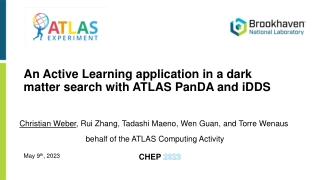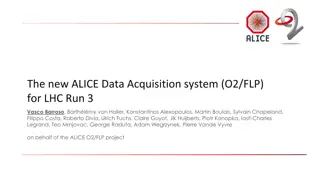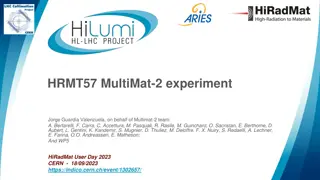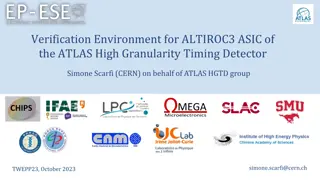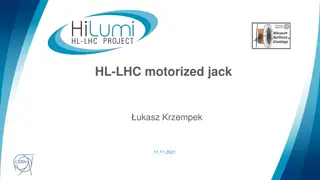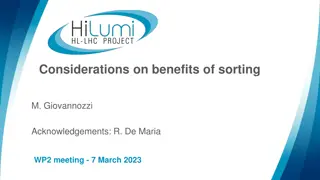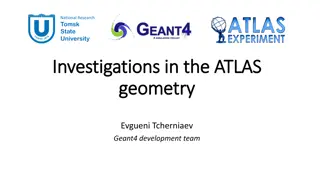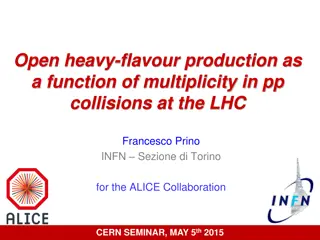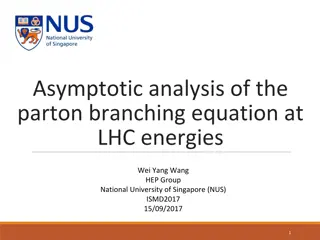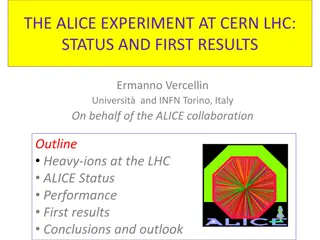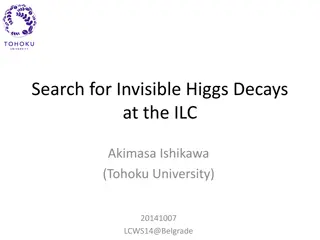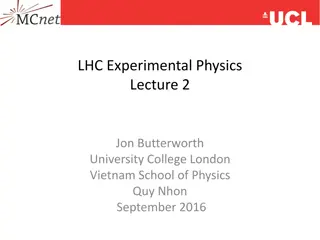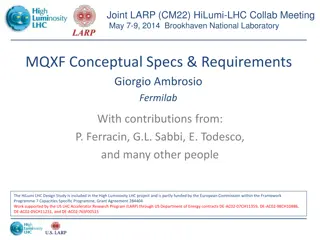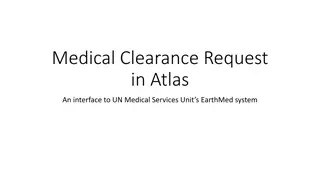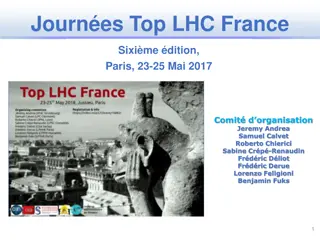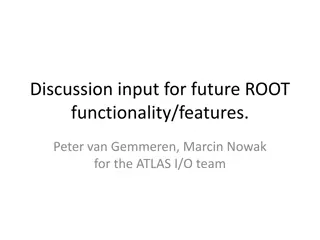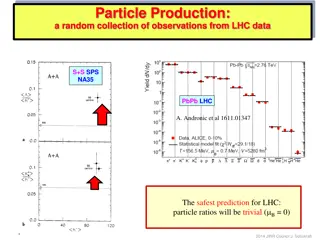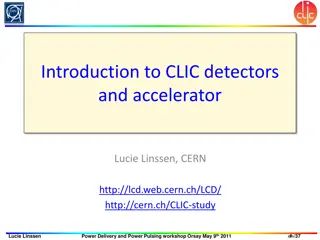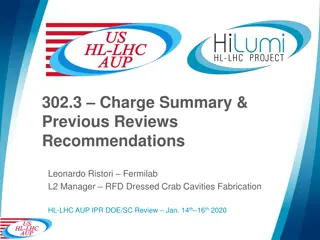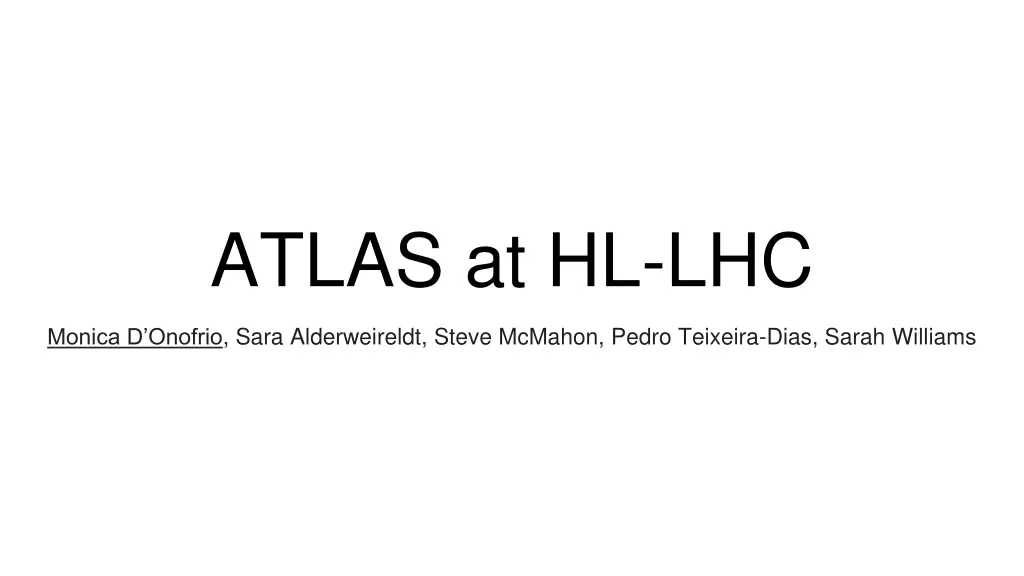
Cutting-Edge Physics Research at ATLAS: Updates and Future Plans
Explore the latest advancements in high-energy physics research at ATLAS, including key scientific deliverables, upgrade funding details, international collaborations, and future upgrade paths at the HL-LHC. Get insights into precision measurements, Higgs boson couplings, new physics scenarios, environmental costs, financial estimates, and more. Stay informed about the groundbreaking work and contributions of researchers at ATLAS in the UK.
Download Presentation

Please find below an Image/Link to download the presentation.
The content on the website is provided AS IS for your information and personal use only. It may not be sold, licensed, or shared on other websites without obtaining consent from the author. If you encounter any issues during the download, it is possible that the publisher has removed the file from their server.
You are allowed to download the files provided on this website for personal or commercial use, subject to the condition that they are used lawfully. All files are the property of their respective owners.
The content on the website is provided AS IS for your information and personal use only. It may not be sold, licensed, or shared on other websites without obtaining consent from the author.
E N D
Presentation Transcript
ATLAS at HL-LHC Monica D Onofrio, Sara Alderweireldt, Steve McMahon, Pedro Teixeira-Dias, Sarah Williams
ATLAS in UK: from run 3 to HL-LHC ATLAS UK composition 14 universities + STFC Rutherford Lab 11.7% of ATLAS active authors 260 Physicists and 108 engineer/tech/admin 142 current doctoral students Project Funding: mainly from STFC Additional funding: EPSRC, UKRI, Royal Society, ERC, Marie Curie, Schmidt Family Foundation, Leverhulme Trust Run 4: UK Phase II upgrade responsibilities Major roles and international leaderships Just since 2021: 14 Level-1 coordinators, 15 Physics and Combined Performance group conveners (and >40 sub-group conveners) in diverse areas, ~55 Level-3 coordinators; ITk-Pixels ITk-Strips Calorimeter Trigger (eFEX & Global) High Level Triggering & DAQ Upgrade software dynamic community, engaged in developing new ideas at all levels, including ECRs and students ~ 650 students awarded PhD since 2005 Upgrade funding so far: 128M for 12 years (2014-2026)
Scientific deliverables Key physics deliverables (stub): - Precision measurements of SM parameters including W and top mass, sin theta_eff, B-Physics, top physics and more - Precision measurements of the Higgs boson couplings and evidence / observation of di-Higgs - Direct exploration of hundreds of new physics scenarios (supersymmetry, new resonances, dark sectors, dark matter searches) - Indirect constraints of new physics through precision measurements EWKS and Higgs-self coupling evidence (at least) BSM searches At least a factor of 2 expected in precision for W mass
Some additional parameters and costs centre-of-mass energy: 14 TeV integrated luminosity: 3000/fb number of interaction points: 1 (this is ATLAS) time running at stage: 10 years wall power to be checked accelerator length: 27 km estimated year for first collisions: 2030 future upgrade paths: 2033+ (LS5 and/or LS6) Environmental cost of construction (in units of tonnes of CO2 equivalent) - check if available Environmental cost of operation per year (in units of tonnes of CO2 equivalent) - check if available Estimate of financial costs (provide separate numbers for R+D phase, construction phase and operations phase) - Does your project plan dedicated submission(s) for the ESPPU (if so, give details) - HL-LHC is already the highest priority according to the European Strategy, a submission is being prepared by the international collaboration (actually, there are more than one submission being prepared)

![[PDF⚡READ❤ONLINE] Road Atlas for the Total Solar Eclipse of 2024 - Color Editio](/thumb/21696/pdf-read-online-road-atlas-for-the-total-solar-eclipse-of-2024-color-editio.jpg)
